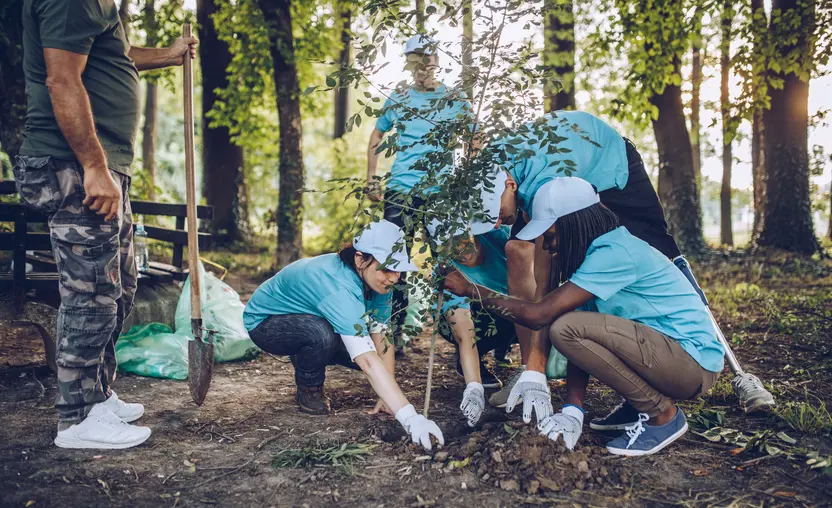Meaningful and actionable supporter engagement is the key to building long-term loyalty to your organization. But how do you determine what types of messages and activities will be meaningful to your supporters? To reach them more directly and tailor your messages to their preferences, you’ll need their feedback.
In this guide, we’ll explore three ways your nonprofit organization can leverage surveys to learn more about your supporters and adjust your engagement strategy.
1. Start with broad questions.
One of the best ways to make sure you’re asking the right questions at the right time is to start with broad questions. Of course, these questions should still be relevant to your nonprofit’s purpose. Starting with a broader scope, though, gets your supporters interested in your message and usually yields an immediate response.
For example, if your nonprofit is a human rights organization, you might ask a simple yes or no question, such as:
- “Do you think human rights are important?”
- “Are you concerned about human rights abuses?”
- “Do you think human rights are a priority in our country?”
The simplicity of these questions tends to attract a larger audience. For example, your organization might post a broad question on its social media channels. It won’t just reach your followers, but also your followers’ followers and anyone else the post might be shared with. As a result, more people will be inclined to participate in the conversation, since it’s such an easy question to answer.
Answering that initial question gets your audience hooked. Once their interest is piqued, they’ll be ready to answer your survey’s follow-up questions.
2. Narrow your survey down.
As your survey continues, your follow-up questions can get more detailed. Connect with supporters on a more personal level by asking for their:
- Opinions on the topic. Position your questions as open-ended to learn more about supporters’ unique opinions or thoughts. For example, after asking if supporters think human rights are important, you might ask them which human rights are especially important to them.
- Thoughts on other topics. Introduce other topics that are still related to your nonprofit’s overall purpose. You might shift the human rights conversation to a relevant news story or political event and ask for their opinions.
- Perspective of your nonprofit’s purpose. Explain your nonprofit’s purpose to gather opinions on your organization’s work. For example, you might explain that your organization meets with governmental figures to enact change for immigrants’ rights and ask, “Do you think that these meetings will make a meaningful difference on immigration policy?”
These additional questions will spark opinions and involve supporters more and more throughout the survey. This way, your audience will be more deeply engaged as your questions become more specific.
Even if your supporters don’t enter the survey with focused opinions, your questions can be an opportunity to educate them and encourage them to think deeply about your purpose.
3. Provide a next step.
Think about your nonprofit survey like a play: Your first question sets the stage, your next questions tell the story of your nonprofit, and your last question is what your audience will walk away with.
Your final question should be an actionable appeal. Ask your audience what they’ll do with the information shared in the rest of the questions and urge them to take action. Potential calls to action include:
- “Will you make a donation today in support of our purpose?”
- “Will you commit to volunteering this month to help us further our work?”
- “Will you tell your friends about the importance of this issue?”
Ending your survey with a request not only communicates what your organization needs but makes your supporters feel necessary to fulfilling your purpose. Including your supporters in your work is the ultimate way to engage them and give them a sense of belonging within your organization. This way, they’ll not only be inclined to get involved, but they’ll also feel a sense of loyalty to your nonprofit.
Use nonprofit surveys to engage your supporters.
Using tactics like nonprofit surveys can remind supporters that you share their values and want to hear their opinions. More engaged supporters tend to develop and maintain stronger relationships with you and your purpose which means stronger advocates, more active volunteers, and more committed donors.




